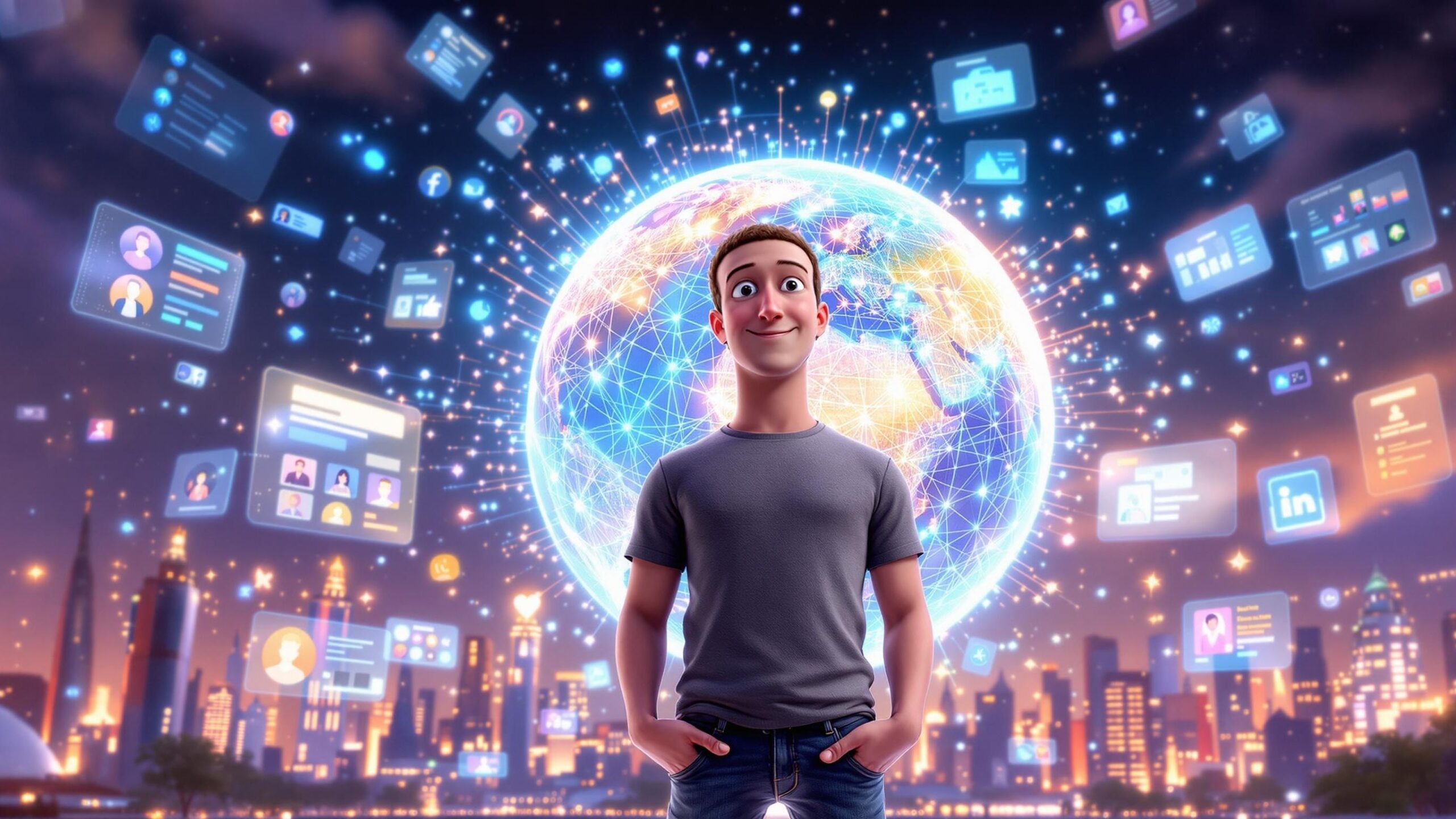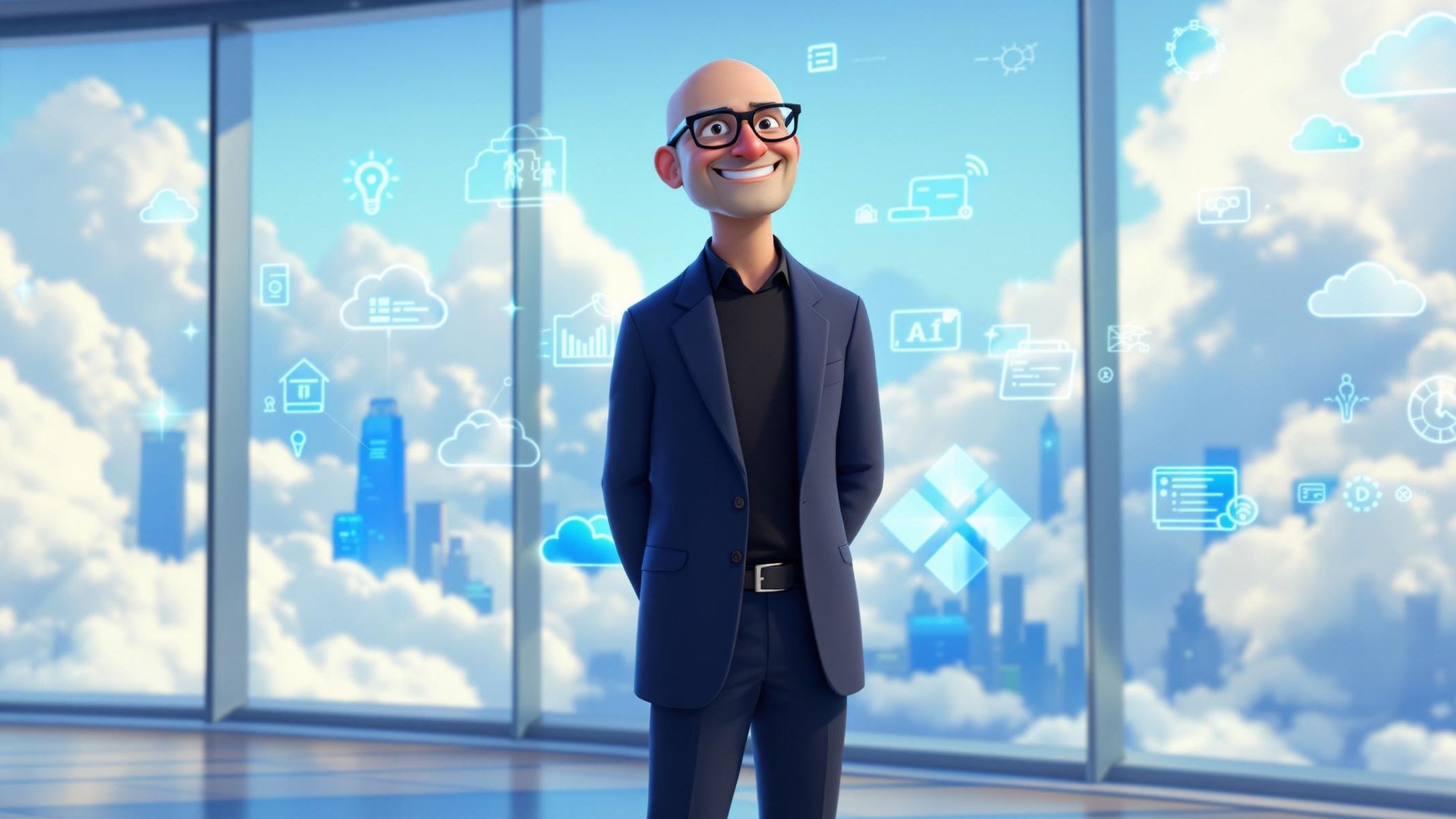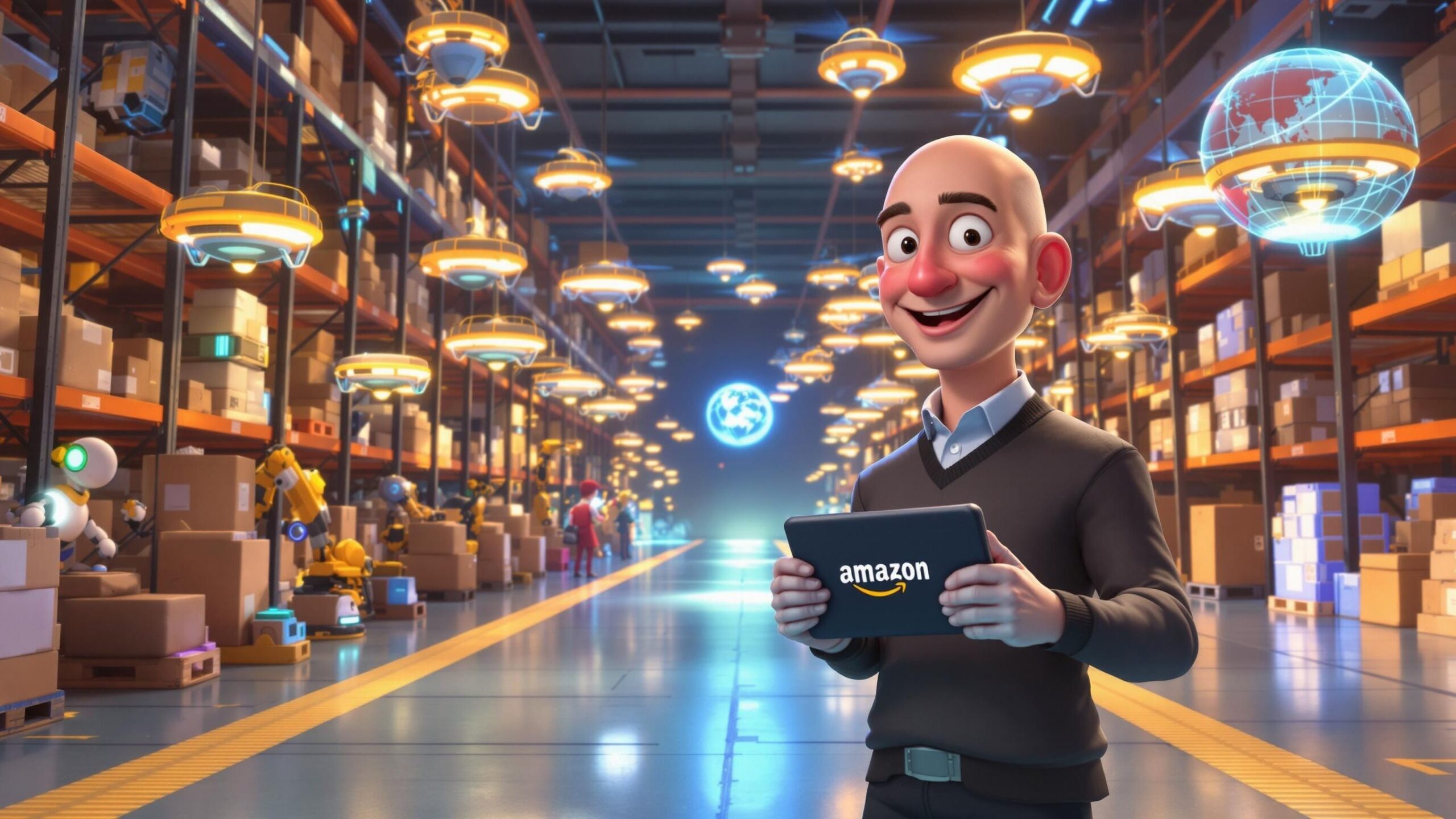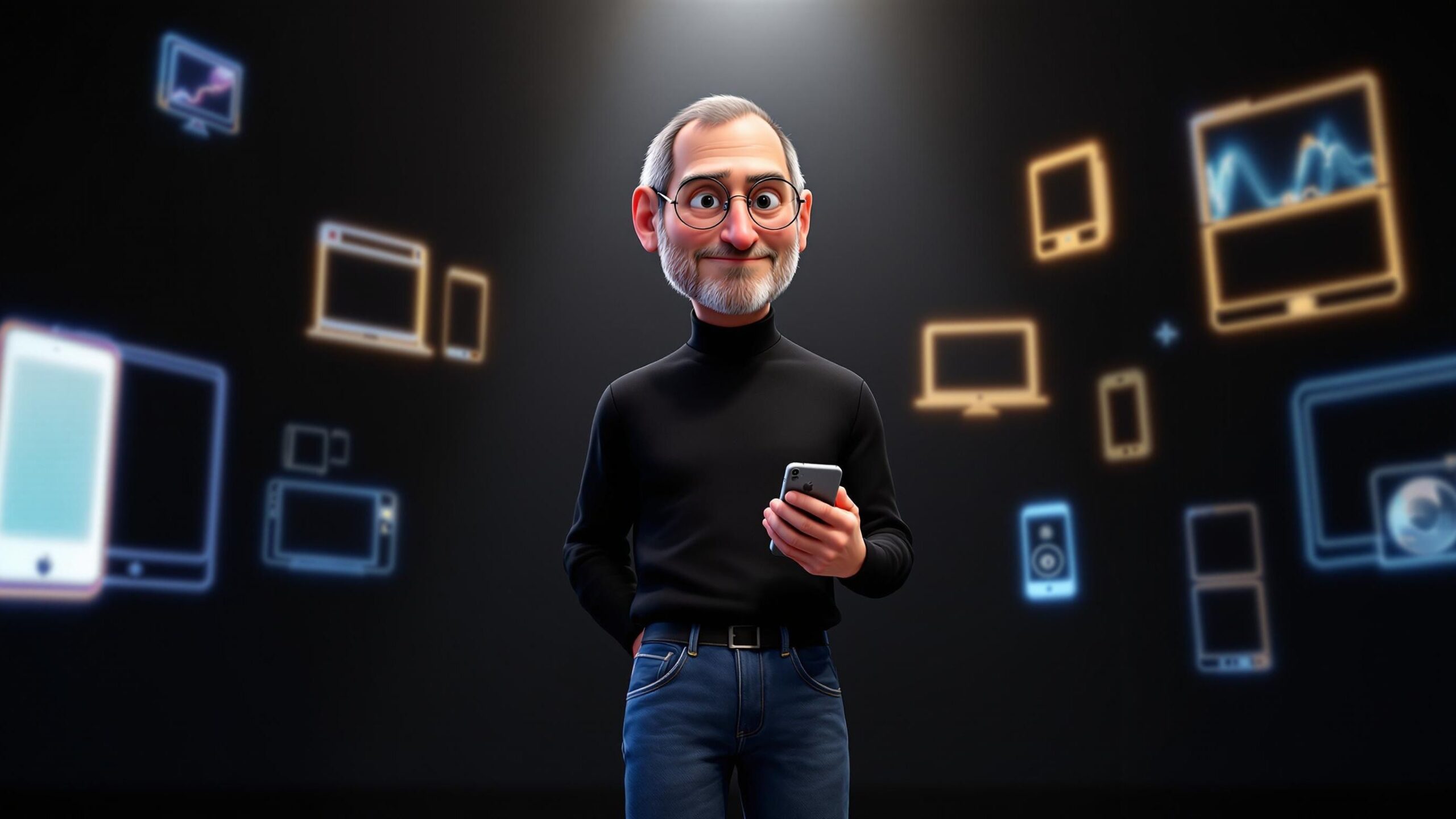In the span of two decades, Mark Zuckerberg went from college sophomore with a knack for programming to one of the most powerful figures in global communication. As the co-founder and CEO of Facebook—now Meta—Zuckerberg redefined what it means to be connected in the 21st century. His platforms have helped billions share life moments, launch movements, and debate ideas in real-time. But Zuckerberg’s influence extends far beyond friend requests and status updates. He helped architect the modern social internet, ushering in an age of real-time sharing, digital identity, and algorithmic influence. Love him or loathe him, Zuckerberg has built the infrastructure for how humans now socialize, mobilize, and digitize their lives. This is the story of the hoodie-wearing, code-crunching prodigy who transformed a college network into a global phenomenon—and how that transformation continues to shape society today.
TheFacebook.com: Ivy League Prank Turned Global Empire
In 2004, Zuckerberg, then just 19, launched “TheFacebook” from his Harvard dorm room. The idea? A digital yearbook where students could view profiles, photos, and personal interests of fellow classmates. Inspired in part by campus directories and his earlier projects like “Facemash” (a controversial hot-or-not comparison site that nearly got him expelled), Zuckerberg created a simple, addictive social experience. And it took off like wildfire. Within weeks, thousands of students were signing up. By the end of the year, TheFacebook had expanded beyond Harvard to other Ivy League schools, then to universities across the U.S., and finally to the general public in 2006. With each expansion, Zuckerberg’s creation grew not just in users but in influence. He dropped out of Harvard, moved to Silicon Valley, and began assembling a team that would help scale the platform globally. TheFacebook soon became simply “Facebook,” and it was no longer just a student novelty. It was becoming the platform for digital identity—where people posted life updates, tagged friends in photos, and formed digital communities that mirrored (and sometimes outpaced) real-life ones.
The News Feed and the Birth of the Algorithm
One of Zuckerberg’s most pivotal innovations came in 2006 with the launch of the News Feed. Before this, Facebook users had to visit individual profiles to see updates. The News Feed flipped that model: now the platform showed you a dynamic, real-time stream of posts from your social circle. It was controversial at first users protested the change, worried about privacy—but Zuckerberg stood by it. And he was right. The News Feed transformed Facebook from a social directory into a living, breathing social organism. It was addictive, immediate, and constantly refreshing. To power this new experience, Zuckerberg and his team began developing algorithms to sort and prioritize content—favoring posts you were likely to engage with. This decision would have massive ripple effects. It helped Facebook become the most engaging social platform in the world, attracting advertisers and growing revenue. But it also introduced a new force into human communication: the algorithm. What people saw was no longer in chronological order—it was curated based on what the system believed they wanted. This move catapulted Facebook into the next era of dominance, but it also raised new questions about control, influence, and filter bubbles.
Acquisitions and Expanding the Social Universe
Zuckerberg’s vision didn’t stop at Facebook. Over the next decade, he transformed his company into a sprawling social media empire through a series of high-profile acquisitions. In 2012, he purchased Instagram for $1 billion—a move that shocked the tech world but would prove brilliant. Instagram grew into the premier platform for visual storytelling, especially among younger users. Two years later, he acquired WhatsApp for $19 billion, bringing a massive global messaging audience into the fold. And in the same breath, he acquired Oculus VR, signaling Facebook’s early interest in virtual and augmented reality. These moves showed Zuckerberg’s strategic genius. He didn’t just want to dominate one platform—he wanted to own the entire social ecosystem. By controlling multiple pillars of digital interaction—photos, messaging, and virtual experiences—he ensured Facebook’s relevance across devices, cultures, and age groups. Zuckerberg’s company became more than just a website—it became a network of networks.
Privacy Backlash and Political Firestorms
As Facebook grew, so did its challenges. With billions of users and unprecedented access to personal data, the platform became a magnet for scrutiny. The 2016 U.S. presidential election thrust Facebook into the political spotlight when it was revealed that Russian operatives had used the platform to spread disinformation. The Cambridge Analytica scandal followed, exposing how personal data from millions of users had been harvested without proper consent. Zuckerberg was summoned to testify before Congress, facing tough questions about privacy, content moderation, and Facebook’s responsibility in shaping public discourse. The hoodie came off, and the CEO suit went on. In interviews and hearings, Zuckerberg remained calm, focused, and often deflective. He apologized, promised reforms, and doubled down on transparency tools. But critics argued that Facebook’s algorithm-driven model—designed to maximize engagement—often amplified outrage, misinformation, and division. Still, Zuckerberg pressed forward. He launched new features to fact-check posts, highlight trusted news sources, and reduce harmful content. At the same time, he emphasized Facebook’s role in helping people organize around causes, connect with communities, and even run businesses during the COVID-19 pandemic. The balancing act between openness and responsibility would become a defining theme of his leadership.
The Meta Metamorphosis: Rebranding and the Future of the Internet
In 2021, Zuckerberg made his boldest move yet: he rebranded Facebook Inc. to Meta, signaling a pivot toward the metaverse—an immersive, interconnected digital world where people could work, play, and interact through virtual avatars. The announcement was met with mixed reactions. Critics saw it as a distraction from Facebook’s ongoing issues. Enthusiasts saw it as a visionary leap into the future of computing. For Zuckerberg, it was a full-circle moment: just as he had built the social internet in the 2000s, he now aimed to build its 3D successor. Under the Meta banner, Zuckerberg has poured billions into Reality Labs, developing AR glasses, VR headsets, and metaverse platforms like Horizon Worlds. While adoption has been slow, Zuckerberg remains committed, believing that the next chapter of human interaction will be immersive, persistent, and spatial. Meta’s success is still unfolding—but what’s clear is that Zuckerberg remains obsessed with reinvention. He’s not content with where the internet is—he’s always trying to push where it could be.
The Mind of Zuck: Builder, Thinker, Controversial Visionary
What drives Mark Zuckerberg? Unlike the flashy bravado of some tech titans, Zuckerberg is known for his cerebral, analytical approach. He’s a builder at heart—always iterating, always refining. He once famously declared that companies should “move fast and break things,” and that ethos shaped Facebook’s early years. But as the stakes grew, so did his caution. In recent years, he’s focused more on infrastructure, safety, and long-term thinking. He reads philosophy, studies history, and sets yearly personal challenges—like learning Mandarin or running a marathon. Zuckerberg isn’t charismatic in the traditional sense. But he’s methodical, consistent, and deeply focused. Whether you see him as a visionary or a villain depends on where you stand—but no one can deny his impact.
The Man Who Wrote the Code for Global Conversation
Mark Zuckerberg changed more than the way we connect—he changed the very nature of connection. He digitized relationships, gave people platforms to express themselves, and created tools that became extensions of our social lives. From pokes and friend requests to virtual avatars in the metaverse, his platforms have mirrored—and molded—the evolution of digital society. He’s been hailed as a genius and criticized as a tech overlord. He’s been praised for connecting people and blamed for dividing them. Yet through it all, Zuckerberg remains at the helm of the world’s most influential communication networks, still coding a future that billions will live in. For better or worse, Mark Zuckerberg didn’t just create a social network. He created the social network. And he’s still far from finished.




